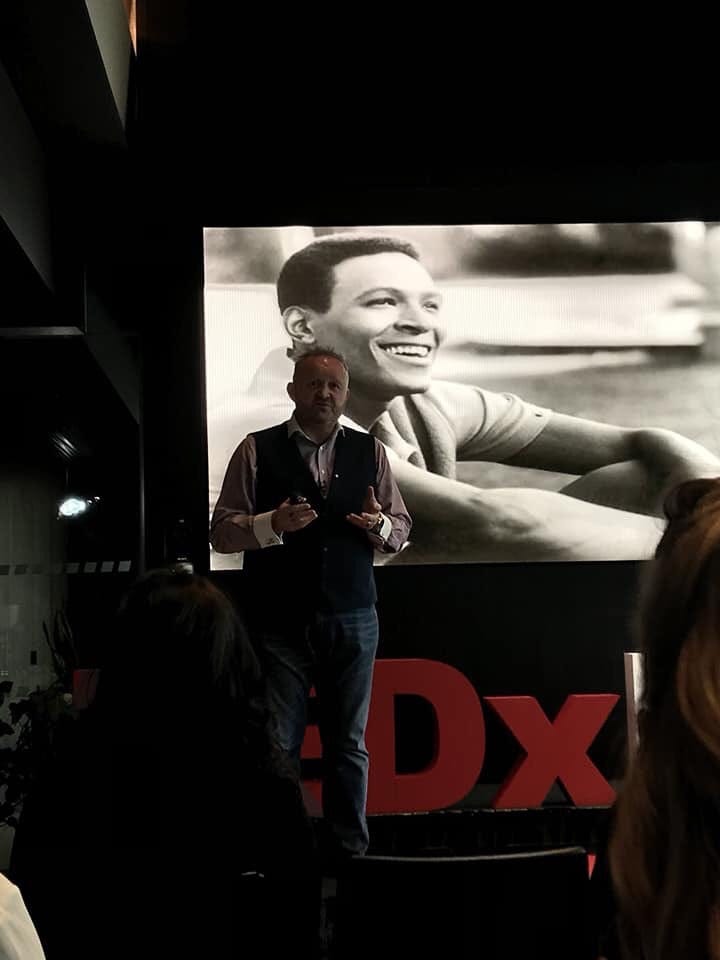It’s a great honour to be here today. 3.5 years ago I burst onto stage at TEDx Bucharest and declared a vision for the future of work. It’s a vision I stand by but today, I’m here to talk about the now of work. And the now of us, human beings doing their thing, with what they have in the world TRYING to create a better future.
So it is that I have the honour of a short space of time to share with you my thoughts – and a little facts, research and provocation – about the way we, as human beings – are being deployed in our work. And how there are daily crimes against humanity being silently and loudly inflicted on us in the name of profit, purpose and production.

I’ll start by introducing you to Marvin Pentz Gay Jnr. You’ll all know of him for his amazing musical accomplishments. Taken from us over 34 years ago this month, his voice has graced some of contemporary music’s finest moments.
Marvin started his singing career in a doo-wop group called the Moonglows. He was quickly snapped up by that entrepreneur of all entrepreneurs Berry Gordy Jnr for his fledgling Motown empire. Initially writing, backing vocals and even drums, Gaye quickly became a potential star. But there was one problem for Gordy with Gaye’s ambition. He wanted to be “the black Frank Sinatra”; and Gordy knew that Motown would thrive initially on the radio play and record purchasing, young, burgeoning middle-class – mainly white – America, and a black Sinatra wouldn’t do that.
So Gordy was shrewd and he instructed his producers, Norman Whitfield and Holland-Dozier-Holland to score his compositions one octave higher. It forced Gaye to put a different energy into his singing. And the pleading tones of “Can I Get A Witness”, “I Heard it Through the Grapevine” and “You’re All I Need To Get By” would become legends of musical performance. It paid off. A 4 octave range helped of course.
So Gordy created a different energy in Gaye that became his trademark and even he began to like it.
Until, in 1970, inspired by a song written with Obie Benson of the Four Tops and after witnessing police brutality in race riots, he wanted to record a socio-political song. And Gordy was having none of it. So Gaye went on strike. He withdrew his energy. Of course, we know now that Gaye won. He recorded What’s Going On and it became a million seller smash and still, to this day, rings true on the state of how we are with each other, with conflict and struggle.
So it’s THIS energy I’m interested in today. Not just recording artists but of us all, in our own versions of “What’s Going On” and beyond. What’s our version of one octave higher? And even why should we be bothered about that?
To read the rest of this article, please visit: The Edge: People-Powered Design





